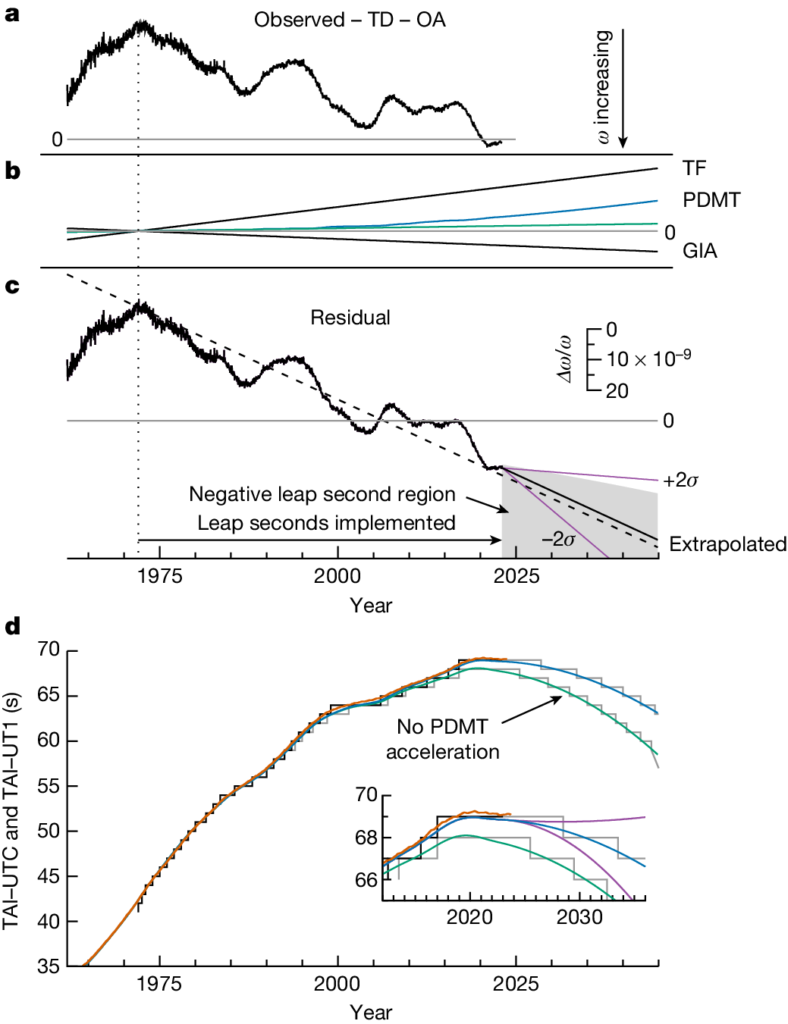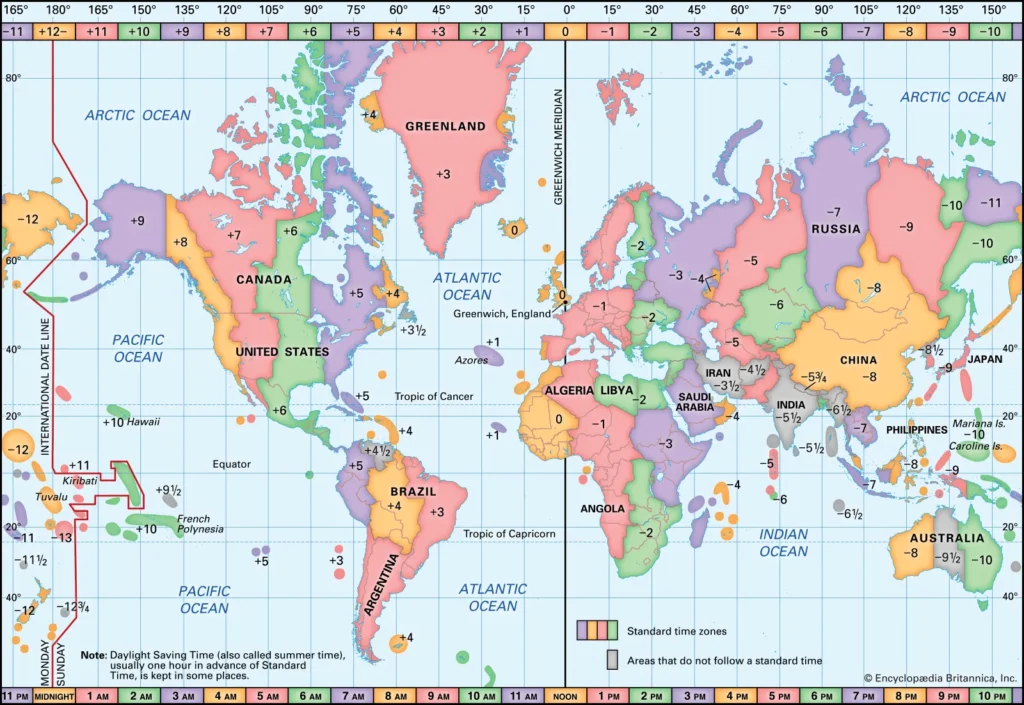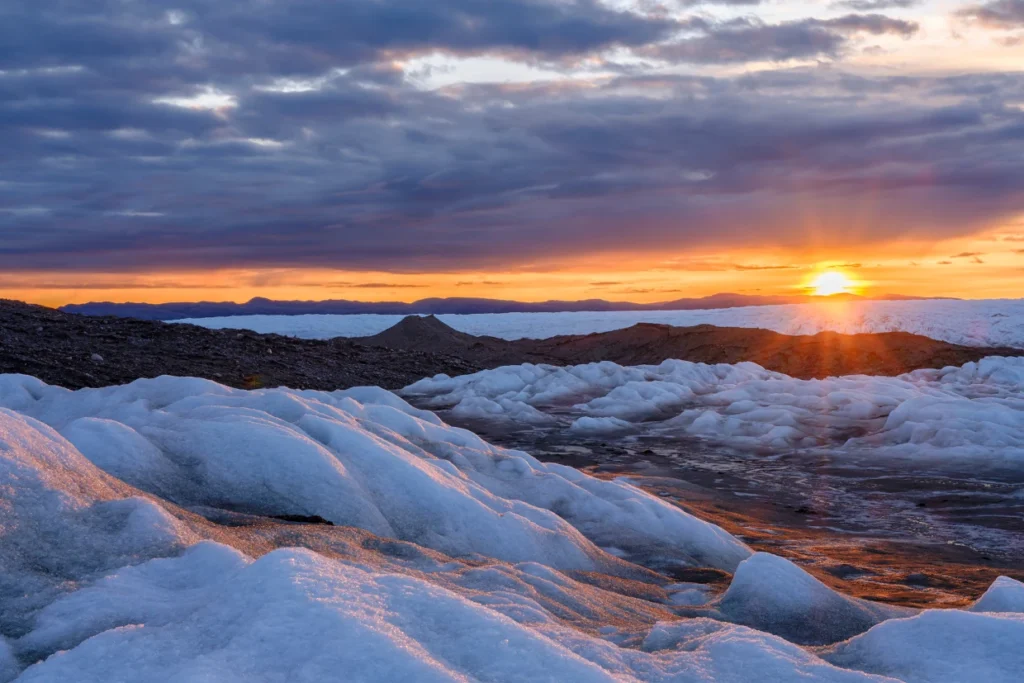A new study reveals surprising consequences of melting polar ice: it’s slowing Earth’s rotation, potentially affecting how we measure time in the future. University of California, San Diego geophysicist Duncan Agnew led the research.

He analyzed satellite data and found that as ice melts and moves towards the equator, Earth’s mass distribution changes. The poles become lighter, while the middle gets slightly heavier. This shift has a subtle but measurable effect – it slows down Earth’s spin.

This slowdown presents a challenge for timekeeping. Since our global time standard, Coordinated Universal Time (UTC), is based on Earth’s rotation, any changes in rotation speed require adjustments. These adjustments are crucial for the smooth functioning of satellites, computers, and financial systems, where precise timing is essential.
Currently, UTC is maintained by adding or removing “leap seconds” whenever Earth’s rotation deviates significantly. Agnew’s calculations show that without ice melt, we’d likely need to remove a second by 2026. However, the ice melt’s slowing effect might delay this adjustment to 2029.

In essence, melting ice is adding a tiny bit of extra time to our days, with potential consequences for future timekeeping practices.
Reference- Journal Nature, Futurism, National Geographic, NBC News, Britannica, Clean Technica






